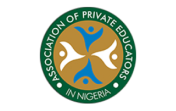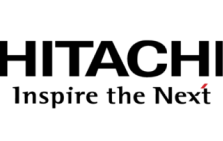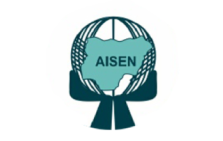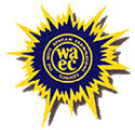Updated by A. Arofin
January 2023
Early Years Section: 213 Ikorodu Road, Ilupeju
Primary Scetion: 1 Temple Drive, Off Olusoji Idowu Street, Ilupeju
Secondary Section: 4-6 Odegbami Street, Off Aba Johnston Crescent, Adeniyi Jones, Ikeja
College Section: 6, Oyediran Close, Opebi, Ikeja, Lagos
1.1 Introduction
Temple School is committed to educating the ‘whole child’. At Temple, we believe in nurturing the four main domains of Child Development: mental, social, physical and spiritual. We also believe that Safeguarding and Child Protection is everybody’s responsibility. Temple School takes the safety and well being of all her learners very seriously and every adult who works in Temple, whether as a permanent or contract staff, is expected to share this commitment to safeguarding.
Our Safeguarding suite includes the following policies:
*Safeguarding and Child Protection
*Equal Opportunities
*Health and Safety
*Anti- Bullying
*Staff Code of Conduct
*Rules and Regulations for Learners
The updates to this policy incorporates elements of the Lagos State Safeguarding and Child Protection Policy. Temple School fully supports and commits to working collaboratively with the State Government and the Ministry of Education, to ensure the safety and wellbeing of our children.
Temple School supports all efforts of the State Government to take action against crimes of abuse so as to ensure the safety and security of all residents and visitors. It is to this end that this Safeguarding and Child Protection Policy has been drawn from the published Lagos State policy on Safeguarding and Child
Protection.
Safeguarding is about practices that ensure children accessing services are safe, while Child protection is about ensuring that potential abuse and neglect, along with general concerns about child well being, are quickly identified and appropriately responded to. Safeguarding is about prevention, while Child Protection
is about responding. These two are inexorably linked and our culture of safeguarding and child protection at Temple School ensures that the safety and security of children is paramount.
We believe that the responsibility for making sure that children are safe and that their needs are met in our school is of critical importance, and each member of staff within the school has a significant role to play to ensure the safety and well being of the children and young people and to help prevent them from harm.
The Lagos State Government reports that, whilst most child abuse occurs within families and communities, children also experience abuse and exploitation in organisations that provide them with support and services, such as schools. Experience has found that physical, emotional abuse and neglect in child focused
organisations and institutions are less systematic and usually unplanned. It is usually the result of poor conditions, bad work practices and negligent management.
This policy therefore describes the management systems and arrangements in place to create and maintain a safe environment for all our children. Furthermore, it identifies actions that should be taken to redress any concerns about child welfare. It will be updated annually, or as the need arises.
1.2 Acknowledgments
We would like to acknowledge the good work of all the Lagos State agencies involved in developing the Safeguarding and Child Protection Policy in 2016, including the Office of the Governor, the Lagos State Domestic and Sexual Violence Response Team (DSVRT), the Ministry of Youth and Social Development, the Ministry for Women Affairs & Poverty Alleviation, the Ministry of Health, the Lagos State Safety Commission, the United Nations International Children’s Emergency Fund, (UNICEF), the Taiwo Akinlami Academy, the Child Health Advocacy Initiative, Saffron SDG and the Lagos State Police
1.3 Purpose
At Temple School, our core service is the education of children and we are committed to providing this service in a safe and conducive environment. Therefore, the protection of children from neglect, abuse, violence and exploitation is given utmost priority.
This Safeguarding and Child Protection policy is necessary to ensure that all members of our community give the utmost priority to the protection of our children as a shared responsibility. This policy is a catalyst for awareness and commitment of every member of the community in the protection of children.
The overarching aim of this policy to help ensure maximum protection of our children, avoid incidences of child abuse, establish a culture of early identification and effective intervention in suspected cases. This will help to minimize the initial and long-term effects of child abuse and promote recovery of the children and families concerned.
1.4 Vision
To provide the right environment, staff, resources and facilities required for promoting critical thinking, effective communication, intellectual curiousity, creativity and an inexorable penchant for learning. Temple School is committed to providing ‘child safe’ environments, where children are respected, protected, empowered and participate in their own protection, and where all staff are skilled, confident, competent and well supported in meeting their protection responsibilities.
1.5 General Policy Statement
At Temple School, we consider child abuse unacceptable in all circumstances and we recognise our moral duty and obligation to ensure that all staff that work with our children function with a view to safeguarding and promoting their welfare. This will be achieved by identifying and managing risks that may lead to harm.
1.5a The rights, welfare and safety of each Temple child, as identified by by the Child’s Rights Law, 2007, are our first and paramount consideration.
1.5b This policy supports all staff to respond appropriately to potential child protection concerns, including suspected abuse or neglect. It is our commitment to protect children from abuse and to recognise the important role of staff that have dealings with children.
1.5c We recognise that some children may be additional vulnerable because of the impact of previous experiences, dependency, communication or other needs.
1.5d All children in our school must be treated equally with respect and fairness, regardless of age, culture, religious background, disability, creed, ethnicity or health status.
1.5e We are mindful that working in partnership with children, young people, their parents, carers and other relevant agencies is essential in promoting children’s welfare.
1.6. Policy Scope
The provision of this policy applies to:
a. All senior staff
b. All junior staff
c. All contract staff
d. All members of the Governing Board and Core Leadership Team
The Policy provides a broad framework and expectations to protect children and prevent abuse, including (but not limited to) staff behaviours in response to actual or suspected child abuse and neglect.
1.7 Definitions
1.7a Child – any person under 18 years as provided by the Child’s Rights Law 2007 Laws of Lagos State of Nigeria
1.7b Safeguarding – Safeguarding is a term which is broader than ‘child protection’ and relates to the action taken to promote the welfare of children and protect them from harm. Safeguarding is: protecting children from maltreatment; preventing impairment of children’s health and development; ensuring
that children grow up in circumstances consistent with the provision of safe and effective care; taking action to enable all children to have the best outcomes.
1.7c Child protection – Child protection is the process of protecting individual children identified as either suffering, or likely to suffer, significant harm as a result of abuse or neglect. It involves measures and structures designed to prevent and respond to abuse and neglect
1.7d Child Protection Unit, Ministry of Youth & Social Development – the department responsible for safeguarding the development of the child through the prevention of all forms of abuse against children, coordinating response and investigation of suspected abuse and neglect and for providing care and protection to children found to be in need.
17e Designated Safeguarding Lead (DSL) – the manager/supervisor or designated person with overall responsibility in the school for ensuring the awareness for safeguarding and child protection is given paramount importance within the school community. Also provides advice and support regarding all matters to do with safeguarding and child protection.
1.7f Assistant Designated Safeguarding Lead (ADSL) – the manager/supervisor or designated person responsible for providing advice and support to staff in each section, where they have a concern about an individual child or who want advice about child protection policy.
1.7g Designated Governor for Safeguarding (DGS) – the Governor responsible for ensuring a culture of Safeguarding is being promoted in the school.
1.7h Disclosure – information given to a staff member by a child, parent or caregiver or a third party in relation to abuse or neglect.
1.7i Physical abuse includes acts of violence such as punching, kicking, whipping, beating with an object, choking, smothering, trying to drown, burning intentionally, or using or threatening to use a gun, knife or other weapon, regardless of whether or not it resulted in obvious physical or mental injury. Many of
those perpetrating the violence may be doing so in the name of ‘discipline’.
1.7j Significant Harm – Some children are in need of help and intervention because they are suffering, or likely to suffer, significant harm. This is the threshold that justifies compulsory intervention in family life in the best interest and promotion of the welfare of a child. Significant harm can be considered as the severity of maltreatment, the degree, extent, duration and frequency of abuse and neglect; the extent of premeditation, presence or degree of threat, coercion, sadism and bizarre or unusual elements.
1.7k Social Worker – Social care qualified professionals with case responsibility including receiving and responding to child concerns/referrals.
1.7l Specialised Police Unit in the Nigeria Police (presently referred to as Juvenile Welfare Centre) – the agency responsible for responding to situations where a child is in immediate danger and for working with Child Protection Unit and investigating cases of abuse or neglect where an offence may have occurred.
1.7m Sexual abuse includes any act that involves forcing or enticing a child to take part in sexual activities, whether or not they are aware of what is happening. It is not necessary for the child to be aware that the activity is sexual and the apparent consent o fthe child is irrelevant. Sexual abuse can be, but is not limited to:
1.7n Emotional abuse – any act or omission that results in adverse or impaired psychological, social, intellectual and emotional functioning or development. This can include:
*Patterns of isolation, degradation, constant criticism or negative comparison to others.
*Isolating, corrupting, exploiting or terrorising a child.
*Exposure to family or intimate partner violence.
1.7o Neglect –Neglect is the most common form of abuse and it has the potential of seriously impairing the child’s health or development. Forms of Neglect include-
*Physical- Looking rough and uncared for, dirty, without appropriate clothing, underweight), not providing the necessities of life like a clean place, food and clothing.
*Emotional- Not providing comfort, attention and love
*Neglectful supervision- Leaving children without someone safe looking after them, no safe home to return to.
*Medical Neglect- Failure to present child for timely immunization, persistent nappy rash or skin disorders or not taking care of health needs.
*Educational or Vocational Neglect- Allowing chronic truancy, failure to enroll in school or vocational
training centers or inattention to education needs).
1.8 Legal Framework:-
This policy was drawn up on the basis of law and guidance that seeks to protect children namely:-
1.8a Convention on the Rights of the Child 1989
1.8b African Charter on the Rights and Welfare of the Child, 1999
1.8c Child’s Rights Act, 2003
1.8d Lagos State Child’s Rights Law, 2007
1.8e Prevention Against Domestic Violence Law, 2007
1.8f Criminal Law of Lagos State 2011
1.8g The Family Court of Lagos State (Civil Procedure) Rules 2012
1.8g EO/BRF/005OF2014, Lagos State Sex Offenders Monitoring Programme And Mandated
Reporting, 2014
2.1 Prevention
In promoting the welfare of children and protecting them from harm, Temple School seeks to keep children in our care safe by:-
2.1a valuing them, listening to and protecting them,
2.1b creating an environment to encourage them to develop a positive self image,
2.1c encouraging them to develop a sense of independence and autonomy in a way that is appropriate to their age and stage of development,
2.1d providing a safe and secure environment for them all,
2.1e sharing information about safeguarding and good practice with the children, their parents, staff and volunteers,
2.1f sharing concerns with relevant agencies and involving parents and children appropriately.
2.1g promoting and prioritising the safety and wellbeing of children and young people.
2.1h Ensuring everyone understands their roles and responsibilities in respect of safeguarding and is provided with appropriate learning opportunities to recognise, identify and respond to signs of abuse, neglect and other safeguarding concerns relating to children and young people.
2.1i Ensuring appropriate action is taken in the event of incidents/concerns of abuse and support provided to the individual/s who raise or disclose the concern.
2.1j Ensuring that confidential, detailed and accurate records of all safeguarding concerns are maintained and securely stored.
2.1k Conducting a thorough risk assessment before major events and outings.
2.1l Maintaining all facilities in top condition.
2.1m Prevent the employment/deployment of unsuitable individuals.
2.1n Ensure robust safeguarding arrangements and procedures are in operation.
2.2. Safer Recruitment of all staff who work with children
Child Protection is an important segment in the contract and induction programme of newly recruited staff. We adopt a consistent and thorough safe recruitment process of personnel, voluntary or paid who have direct or indirect contact with any of our children in order to ensure that those recruited are suitable. The following are required in the recruitment process for personnel:-
2.2a A minimum of two (2) written character references, by a family member and any other person that has more than two years relationship with candidate, shall be provided by the candidate. Verification of the references is carried out before a confirmation of employment is made.
2.2b A signed statement of commitment to the organization’s Child Protection Policy is a condition of employment.
2.2c All intending personnel are expected to also sign our code of conduct, which maps out expectations of good behaviour as regards their interaction with children.
2.2d At least one member of the recruitment panel will have undergone training and be familiar with the issues of child protection and safer recruitment guidelines.
2.2e The principles of Child Protection are key parts of our Safeguarding policies, which all staff, contractors or agencies that we work with are made to be familiar with.
2.2f We carry out a background search in the Lagos State Sex Offenders Register to determine whether or not any intending personnel is a sex convict.
2.2g The school monitors staff compliance with relevant safeguarding policies, and ensures that the providers will not sub-contract to any personnel who has not been part of a safe recruitment process.
2.3. Display of information
We display information about key aspects of our safeguarding policies, and remind stakeholders regularly of our commitment to the wellbeing of every child.
2.4. Trainings
2.4a We take very seriously, our responsibility for ensuring that staff and volunteers working with our children access and receive regular training to equip them with skills and knowledge to: understand, identify and respond to child protection issues; are competent and confident in carrying out their responsibilities for safeguarding and promoting children’s welfare.
2.4b We train and re-train staff annually on how to recognise and respond to child protection and safeguarding concerns, including signs of possible maltreatment, neglect or exploitation.
2.4c All staff and volunteers are expected to have an awareness of, and access to information about local welfare and child centered agencies, government policies, guidance and practice in relation to children’s welfare.
2.5. Infrastructure and Physical Protection
The management team works closely with the Facilities Managers to ensure that the school environment in all our sections are safe for all children. Site improvement and educational resources are provided based on the following considerations:-
2.5a The best interest of the child
2.5b Fit for children to access for associated activity with no pending danger
2.5c Conducive and not overcrowded.
2.6. Resource Mobilization
This policy shall be implemented through cost-effective measures by; 2.6a Making child protection a priority item for budgetary appropriation by stakeholders
2.6b Allocated funds for the purpose of implementing child protection programmes and projects shall not be diverted to other projects, and such funds shall be released on time and utilized judiciously.
2.7. Feedback Mechanism (responsibilities for designated unit)
The DGS will receive a quarterly report, which reviews how the duties of the Safeguarding Committee have been discharged. The quarterly report will contain, amongst other things –
2.7a Details of actions taken to raise awareness among stakeholders;
2.7b Details of cases, if any, and all parties concerned,
2.7c Steps taken by the relevant authorities in addressing the case.
2.8. Designated Safeguarding Leads (DSL and ADSL)
The DSL and ADSL in each section have lead responsibility for child protection issues and provide child protection advice all staff.
2.8a The DSL and ADSL are the Principal and Pastoral Heads respectively, and they have lead responsibility for child protection issues.
2.8b A key duty for the DSL and ADLS is to take lead responsibility for raising awareness within the organisation, disseminating information on issues relating to the welfare of children and the promotion of a safe environment for the children.
2.8c They receive appropriate training and keep up to date with developments in child protection issues. They also have responsibility for making new staff and volunteers aware of the existing child protection policy and subsequent reviews and updates.
2.8d They will be the main contact point for Child Protection issues and will have a current referral directory which contains contact details for relevant organisations. This list will include contact details of relevant individuals and provisions such as the Child Protection Unit Helpline, the Child Development Department Helpline, the Lagos State Domestic and Sexual Violence Response Team, the Nigerian police, relevant Non-Governmental Organisations and other relevant organisations.
2.8e The ADSLs collate any data of abuse and submit to the DGS through the DSL every quarter. As part of the special responsibilities of the The DSL and ADSL, they will:
2.8f Disseminate information on the appropriate response to child abuse and neglect.
2.8g Ensure audit and evaluation tools are in place to assess our child protection policy, processes and practice.
2.8h Ensure regular audits of our child protection practice.
2.8i Access and provide resources required to support the safeguarding programmes and make these available for staff .
2.8j Provide support and advice to staff regarding child abuse and neglect.
3.1 Identifying child abuse and neglect
1. We recognise that children who are abused or who witness violence may find it difficult to develop a sense of self worth. They may feel helplessness, humiliation and some sense of blame. The School may be the only stable, secure and predictable element in the lives of children at risk. When at the School their behaviour may be challenging and defiant or they might be withdrawn. The School will endeavour to support the pupil through:
We understand that every situation is different and it is important to consider all available information about the child and their environment before reaching conclusions. For example, behavioural concerns may be the result of life events, such as divorce, accidental injury or the arrival of a new sibling etc.
3.2 Consultation and Transparency
When there is any concern that a child is showing signs of potential abuse or neglect, it is normal for us to feel uncertain. However, the important thing is that we should be able to recognise when something is wrong, we should talk to someone immediately, the child’s teacher and the ADSL/DSL, whose responsibility it is to escalate as necessary to the Lagos State Child Protection Unit , other State agencies, Child Protection experts and relevant Non Governmental Organisations – we do not act alone.
3.3 Early Recognition and Intervention
Early recognition and intervention is essential to avoid long-term damage. It is noteworthy that the risk of fatalities from neglect may be as high as that from physical abuse. Teachers, school nurses and educational psychologists who see children on a daily basis are in the best position to identify chronic, slowly deteriorating situations. Teachers are trained to be observant, and to flag any changes in behaviour (such as withdrawal or hyper sensitivity), or injuries in unusual places on a child.
3.4 Dealing with Disclosure of Abuse
All disclosures must be treated with professionalism and confidentiality. If a child tells a member of staff about possible abuse:
1. Listen carefully and stay calm.
2. Do not interview the child, but question normally and without pressure, in order to be sure that you understand what the child is telling you. E.g you could ask, what happened next?
3. Do not put words into the child’s mouth.
4. Reassure the child that by telling you, they have done the right thing.
5. Inform the child that you must pass the information on, but that only those who need to know about it will be told. Inform them of whom you will report the matter to. 6. Note down the main points carefully
7. Open a case file detailing the date, time, place, what the child said, did and your questions etc.
8. Staff should not investigate concerns or allegations themselves, but should report them immediately to the ADSL, who will make a referral to the appropriate quarters.
3.5 Confidentiality and Information Sharing
The DSL and ADSL will preserve the confidentiality of all actual or suspected child abuse and neglect reports, including name and contact information, to protect the privacy rights of the child and the child’s parents or guardians.
Information in relation to child protection concerns will be shared on a “need to know” basis. However, the sharing of information is vital to child protection and, therefore, the issue of confidentiality is secondary to a child’s need for protection.
3.6 Record Keeping
A record of any related discussion, (including copies of correspondence, where appropriate), will be kept.
3.7 Reporting and Dealing with Allegations of Abuse against Members of Staff.
The procedures apply to all staff as well as to volunteers. The word “staff” is used for ease of description.
3.7a All reports and allegations of child abuse against staff members will be promptly and thoroughly investigated.
3.7b All matters involving allegations against staff need to be escalated to the management team.
3.7c To ensure the child is kept safe, management will take steps to remove the staff member against whom an allegation has been made from the environment, pending an investigation.
3.7d Temple School recognises that the Child’s Rights Law, 2007 states that the welfare of the child is the paramount concern. It is also recognised that hasty or ill-informed decisions in connection with a member of staff can irreparably damage an individual’s reputation,
confidence and career. Therefore, steps will be put in place to discourage spurious reports, and proper investigations carried out before an appropriate response is decided.
3.8. SERIOUS CASE REVIEWS
The Lagos State Maternal Perinatal Death Surveillance Report Committee is mandated to undertake a serious case review when a child dies (including death by suicide) and abuse or neglect is known or suspected to be a factor in their death. The purpose of the serious case review is to:
3.9 POLICY IMPLEMENTATION
Temple School will meet its commitment to safeguard and protect children through the following:
3.10 REVIEW AND MONITORING
This Policy will be jointly monitored and reviewed bi-annually by the Temple School Safeguarding Committee. Changes will be made based on current trends, reviews, as well as:
• Change in legislation and or government guidance
• As a result of any other significant change or event
• Learning from Serious Case Review.
All members of staff are expected to flag to the ADSL, any area of this policy that is not being adhered to as soon as they make an observation to suggest this.
Temple School actively supports the work being done by the Lagos State Government through the Office of Education Quality Assurance.
Our Safeguarding Committee:
Designated Safeguarding Lead (DSL)- Adeola Arofin (The Principal).
Assitant Designated Safeguarding Leads (ADSL):
Adurayemi Ipinolu (Deputy Head, Early Years)
Judith Onowighose (Head of Pastoral, Primary)
Kelechi Oti (Head of Pastoral, Secondary)
Ugochi Nnaji (College Counsellor)
Other Members of the Committee:
Oseri Owoeye (Exceptional Learners Coordinator)
Stella Somorin (TS Co-Curricular Programmes Coordinator)
Chidi Ehi-Okharedia (HR)
The Temple School safeguarding Committee shall, on behalf of the Board of Governors, oversee the implementation of the Safeguarding and Child Protection Policy, and take all necessary steps to ensure it is adhered to.
Dated this 13th day of January, 2023.
Signed,
For: Temple School
Founding Director






Temple School declares an unwavering commitment to safeguarding and promoting the welfare of all children and young persons in our charge.
213 Ikorodu Road,
Ilupeju, Lagos
1 Temple Drive, Off Olusoji
Idowu St, Ilupeju, Lagos
4-6 Odegbami Street,
Off Aba Johnston Street,
Adeniyi Jones, Ikeja, Lagos
8 Oyediran Close, Opebi, Ikeja, Lagos
© Temple School 2023 | All Rights Reserved | Legal Notice
© Temple School 2024 | All Rights Reserved | Legal Notice
Join us on a journey of discovery and experience the magic of Temple School firsthand. Schedule a tour to explore our vibrant learning communities and discover why we’re proud to be recognized as a leading choice for education in Lagos.